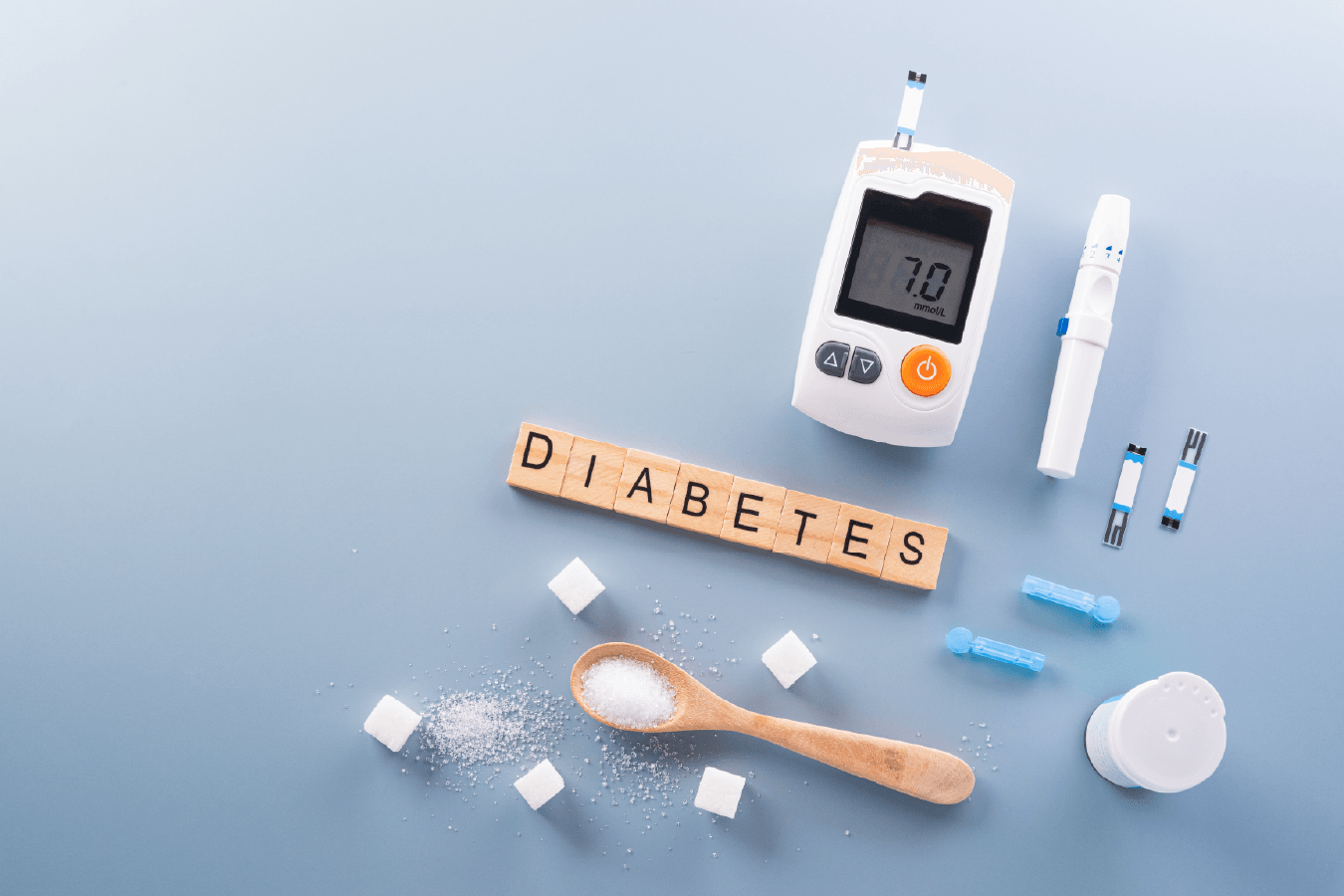
Why Insulin Is Essential in Diabetes Control
By Priyambda Sahay
Reviewed by : Ujala Cygnus
November 22, 2025
Diabetes is one of the most common chronic conditions in India, affecting millions of people across all age groups. At its core, diabetes develops when the body is unable to regulate blood sugar levels effectively, either due to insufficient insulin production or the body’s inability to use insulin properly.
There are several myths and misunderstandings surrounding insulin that often create fear and hesitation among people with diabetes. Many believe that insulin is only required in the final stage of diabetes, or that needing insulin means they have failed in managing their condition, both of which are untrue. Diabetes is a progressive disease, and for many individuals, insulin becomes essential when the body can no longer produce enough on its own. Another common misconception is that insulin causes complications or is addictive; in reality, it protects the body from long-term damage caused by high blood sugar and is a natural hormone, not an addictive drug. People also worry that insulin injections are painful, but modern insulin pens use very fine needles, making the process almost painless. Clearing these myths is important, because timely insulin therapy can be lifesaving and allows patients to lead healthier, more active lives.
According to Dr. Jaspreet Singh, MBBS, MD, DM (Endocrinology), Ujala Cygnus JK Medicity Hospital, Jammu, insulin plays a crucial role in managing diabetes. Insulin, a hormone produced by the pancreas, helps glucose (sugar) from food to enter the body’s cells, where it is converted into energy. When this process doesn’t function properly, glucose remains in the bloodstream, leading to high blood sugar levels and serious long-term health risks.
Why Insulin Injections Are Essential in Type 1 Diabetes
In Type 1 diabetes, the immune system mistakenly attacks and destroys the insulin-producing cells in the pancreas. As a result, the body produces little to no insulin on its own. Without insulin, blood sugar levels can rise dangerously high.
For people with Type 1 diabetes, daily insulin injections are essential for survival. Unlike oral medicines used in Type 2 diabetes, insulin is the only effective way to regulate blood sugar in these patients.
Why Some Type 2 Diabetes Patients Also Need Insulin
Type 2 diabetes usually begin with insulin resistance, where the body cells do not respond properly to insulin. In the early stages, lifestyle changes and oral medications may help maintain healthy blood sugar levels.
However, over time, insulin production may decline, and medicine alone may not be enough. At this stage, doctors often recommend insulin therapy to maintain safe glucose levels and prevent complications. For many, insulin has become a vital part of their long-term diabetes management plan.
Why Insulin Can’t Be Taken as an Oral Pill
A common question among patients is: “Why can’t insulin be taken as a tablet?”
The answer lies in how insulin works. If taken orally, the digestive system breaks it down before it can reach the bloodstream, making it ineffective. That’s why insulin must be administered via injections, pens, or insulin pumps — ensuring it works immediately and efficiently.
The Benefits of Insulin Therapy
Regular insulin therapy offers several health benefits, including:
· Keeping blood sugar levels within safe limits
· Reducing the risk of complications such as kidney damage, nerve damage, and vision loss
· Protecting the heart from diabetes-related problems
· Enhancing overall health, energy, and quality of life
For many individuals living with diabetes, insulin isn’t just a treatment — it’s a lifeline. With the right education, proper technique, and consistent monitoring, insulin therapy empowers people to live active, balanced, and fulfilling lives.
FAQs
1. What exactly does insulin do in the body? Insulin helps move glucose (sugar) from the food we eat into the body’s cells, where it is used as energy. Without enough insulin, glucose stays in the bloodstream, leading to high blood sugar levels.
2. Why do people with Type 1 diabetes need insulin injections? In Type 1 diabetes, the body stops producing insulin because the immune system attacks the insulin-producing cells in the pancreas. Insulin injections are, therefore, essential for survival.
3. Do all people with Type 2 diabetes need insulin? Not always. Many people with Type 2 diabetes can initially control their blood sugar through diet, exercise, and oral medications. However, if these methods stop working, doctors may prescribe insulin to maintain safe glucose levels.
4. Why can’t insulin be taken as a pill? Insulin is a protein that gets broken down by the digestive system if swallowed, making it ineffective. That’s why it must be given through injections or insulin pumps so it can reach the bloodstream directly.
5. Are insulin injections painful? Modern insulin pens and fine needles make injections almost painless. Most people get comfortable with the process after proper guidance and practice.
6. What are the benefits of insulin therapy? Regular insulin use helps control blood sugar, reduces the risk of complications such as nerve and kidney damage, protects the heart, and improves overall health and energy levels.
7. Can insulin cause side effects? When used correctly, insulin is safe and effective. However, improper dosage or missed meals can lead to low blood sugar (hypoglycemia). Regular monitoring and consultation with your doctor to help prevent this.
8. Can lifestyle changes reduce the need for insulin? Yes, especially in Type 2 diabetes. Healthy eating, regular physical activity, maintaining a healthy weight, and stress management can improve insulin sensitivity and may delay or reduce the need for insulin therapy.
If you have any questions related to insulin or diabetes, you can consult a doctor at your nearest Ujala Cygnus Hospital or email our health experts at askadoctor@ujalacygnus.com
Loading...












